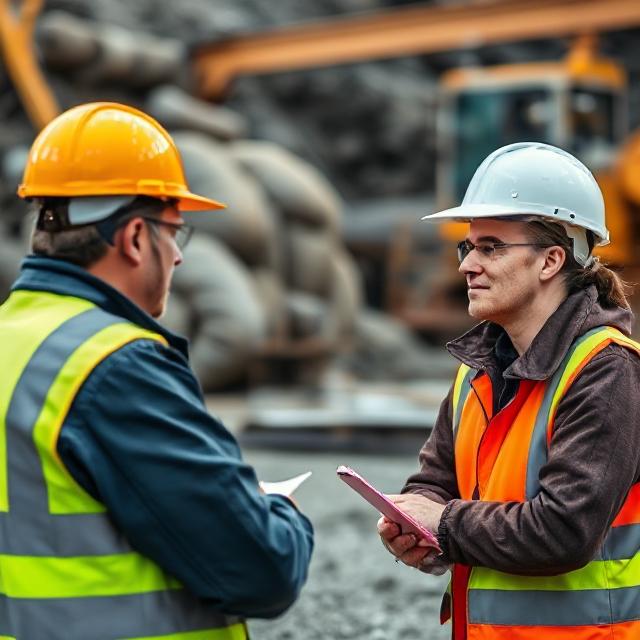Getting Started in the Coal Mining Industry: A Guide for Newcomers
The coal mining industry has long been a vital part of the global economy, providing energy, raw materials, and employment opportunities in both rural and industrial regions. While the industry has evolved with automation and environmental regulation, it still offers a diverse range of career paths for those looking to enter the field. Whether you’re interested in working underground, operating machinery, or contributing through office-based roles, there’s a place for you in coal mining. Coal mine recruitment begins with a resume and cover letter.
Understanding the Industry
Coal mining involves the extraction of coal from underground or surface mines. The coal is then processed and transported for use in power generation, steel production, and other industries. While physical labor is still a part of the job in many roles, the sector increasingly relies on technology, logistics, and safety systems. This opens the door for a wide variety of job types, from highly technical to administrative positions.
Entry Requirements
Getting started in the coal mining industry doesn’t necessarily require a university degree, although certain roles may call for vocational training or tertiary education. For entry-level positions such as mine laborers, truck operators, or maintenance assistants, a high school diploma and a willingness to work in challenging environments are usually sufficient.
In Australia, for example, a “Standard 11” safety induction is typically required for most coal mining roles in Queensland, while New South Wales mines may require a Generic Underground Induction. Employers also expect workers to have a valid driver’s license, the ability to pass a medical assessment, and a drug and alcohol screening.
For technical and administrative roles, you may need qualifications in fields like engineering, human resources, business administration, finance, or IT. There are also apprenticeships and traineeships that offer hands-on learning while you earn.
Key Roles in the Coal Mining Sector
1. Underground Miner or Operator
This is one of the most recognizable roles in the industry. Underground miners operate heavy machinery, install support structures, and ensure safe and efficient coal extraction. Physical fitness, a strong safety mindset, and teamwork are essential for this role.
2. Surface Mining Equipment Operator
Surface miners work above ground, operating draglines, excavators, or haul trucks. These roles also require mechanical skills and safety training. Operators may work long shifts in varying weather conditions, often on a roster-based schedule.
3. Mechanical or Electrical Tradesperson
These skilled workers are responsible for maintaining and repairing mining equipment. You’ll typically need a trade qualification such as a Certificate III in Electrotechnology or Engineering. Apprenticeship programs are a common entry point.
4. Health and Safety Officer
With safety being a top priority in mining, health and safety officers play a vital role. They ensure compliance with laws and regulations, conduct safety training, and manage risk assessments. This role usually requires a diploma or degree in occupational health and safety.
5. Administration and Support Roles
Not everyone in the mining industry gets their hands dirty. Behind the scenes, administrative staff handle everything from payroll and rostering to procurement and logistics. Typical roles include:
- Human Resources Officer: Manages recruitment, training, and employee relations.
- Procurement or Supply Chain Coordinator: Oversees equipment and material purchases.
- Accounts Clerk or Payroll Officer: Manages financial records, salaries, and invoicing.
- Site Administrator: Supports daily operations, including scheduling and compliance paperwork.
These roles often require experience in office environments and relevant qualifications such as certificates in business administration or accounting.
Career Progression and Opportunities
One of the advantages of the mining sector is the opportunity for career progression. Many professionals start in entry-level roles and move into supervisory or managerial positions over time. With experience, additional training, and on-the-job learning, workers can advance into roles such as site supervisor, operations manager, or even mine planner or engineer.









Leave a Reply